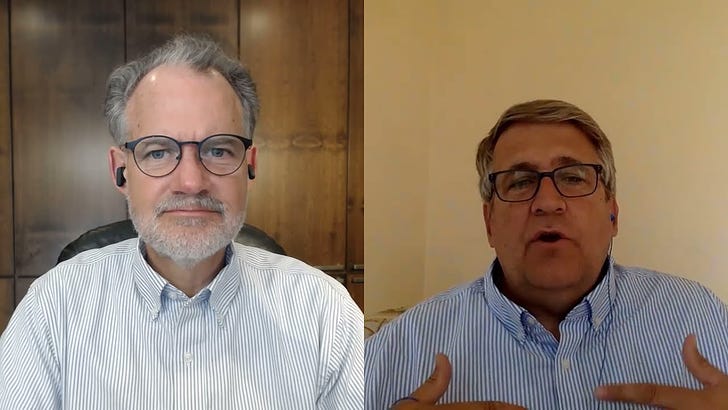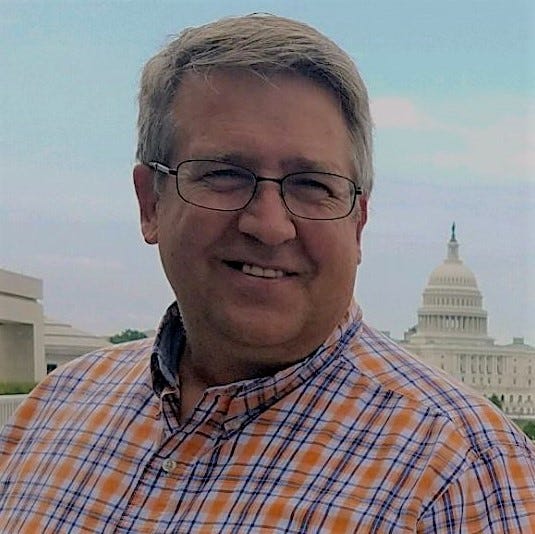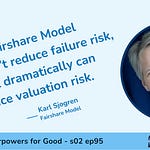Devin: What do you think of as your superpower?
Tim: I feel like I am a problem solver and that, and I’m doing things that I have never had any exposure to—environmental cleanup or large housing development or things like that. But I know how to learn enough to understand the issues. I know how to work through a problem and find solutions to it.
I think the other part is I seem to be able to identify and focus on the things that matter the most. Sometimes I neglect the things that aren’t important, but I call that selective negligence. You know, the things that aren’t very critical you put to the side until you have a spare moment, but focus on the most crucial things, the things that are on the critical path that will keep you from moving forward.
Leading The Other Side Academy, Tim Stay has done the impossible. He’s created a successful nonprofit that thrives on the revenue generated by the people it serves—a group of people arrested an average of 25 times, who have struggled with addiction and 80 percent of whom have been homeless.
The Other Side Academy operates in Salt Lake City and Denver. In Salt Lake, where it began, it runs the leading moving company in town. It got its start by helping the Salt Lake Police Department move to its new office space. Tim notes that the officers were more nervous than the “students.”
Today, The Other Side Movers has a five-star rating on Yelp and has won numerous awards and accolades for its services.
At the same time, and frankly more to the point, the now five-year-old program has helped its graduates stay out of trouble. In five years, the police have never been called to The Other Side Academy, where more than 100 people whose lives were utterly wrapped up in trouble now live.
The graduates of the two-and-a-half-year program have a recidivism rate of just 12 percent. An optional six-month extension reduces that number to just 4 percent.
Tim and the team are now making plans to launch The Other Side Village in Salt Lake City. It will be a truly unique effort to build a deliberate community of chronically unhoused people. Tim intends to help them lift themselves out of the patterns that led to their homelessness, not just give them a place to live.
Tim explains:
There has been an evolution in homeless services for those experiencing homelessness. The early models were a "Housing First" approach - get them into a home and stabilize their lives. Then the next phase was a Housing First with Wrap Around services - get them into a house and provide mental and medical services to help. We see our model as the next step in this progression - housing with wrap around services plus a strong peer accountability culture to help them change the underlying behaviors that led to homelessness, addiction, and criminal activity.
We also believe in the power of meaningful work to bring purpose to one's life and we will hire any resident of the Village that is interested in working in one of our Social Enterprises. We will also help train and place any resident interested in working for any other company in the area.
We understand that many of the chronically homeless have mental illness, physical disabilities, or addictions. We will adapt employment opportunities to their capacities and ensure that they have access to the appropriate mental health, medical, and other services needed.
Given Tim’s track record with The Other Side Academy, I’m excited to see what he and his team can do with the Village.
When I asked Tim about his superpower, he described problem-solving and selective negligence (or, more simply, prioritization). He was also able to see how he uses those skills to handle new challenges effectively. With proven success in tech entrepreneurship, Tim faces completely new challenges, like managing a 400+ unit housing development project as his first housing project or leading an environmental cleanup for the first time—all with limited staff support.
How you can develop problem-solving and selective negligence as superpowers
Tim shared some ideas on how you can learn to solve problems and prioritize your work.
Selective Negligence: Tim notes with some pride that there are some things he doesn’t do, or at least not quickly. By prioritizing his work, he takes comfort in knowing that the things that don’t get done are less important than what he did instead. Hence the name, selective negligence.
He built the skill off of Stephen Covey’s 7 Habits of Highly Effective People that calls for creating a three-tiered to-do list, with A, B and C priorities, ranking the A priorities top to bottom. This tried and true model has been a practical guide for Tim, and it can work for you.
Problem Solving: Tim says the critical step for solving problems is first defining the problem. It sometimes requires that you take a step back to get a broader view to see the context and understand what is driving the symptoms. Once you diagnose the problem, the solution becomes much more manageable.
Tim uses the example of the capacity constraints The Other Side Academy experienced a few years ago. When it became clear that their landlocked facility with no room for expansion wasn’t big enough, they realized they needed to acquire a neighboring property.
Tim approached the neighbor who initially rejected the idea, but within a year, he agreed to sell, and the organization acquired the much-needed additional space.
Even if you can’t make selective negligence and problem solving your superpowers, you can become proficient enough to ensure that you aren’t limited by your inability to prioritize or solve problems. You can do more good and become more successful.
















Share this post